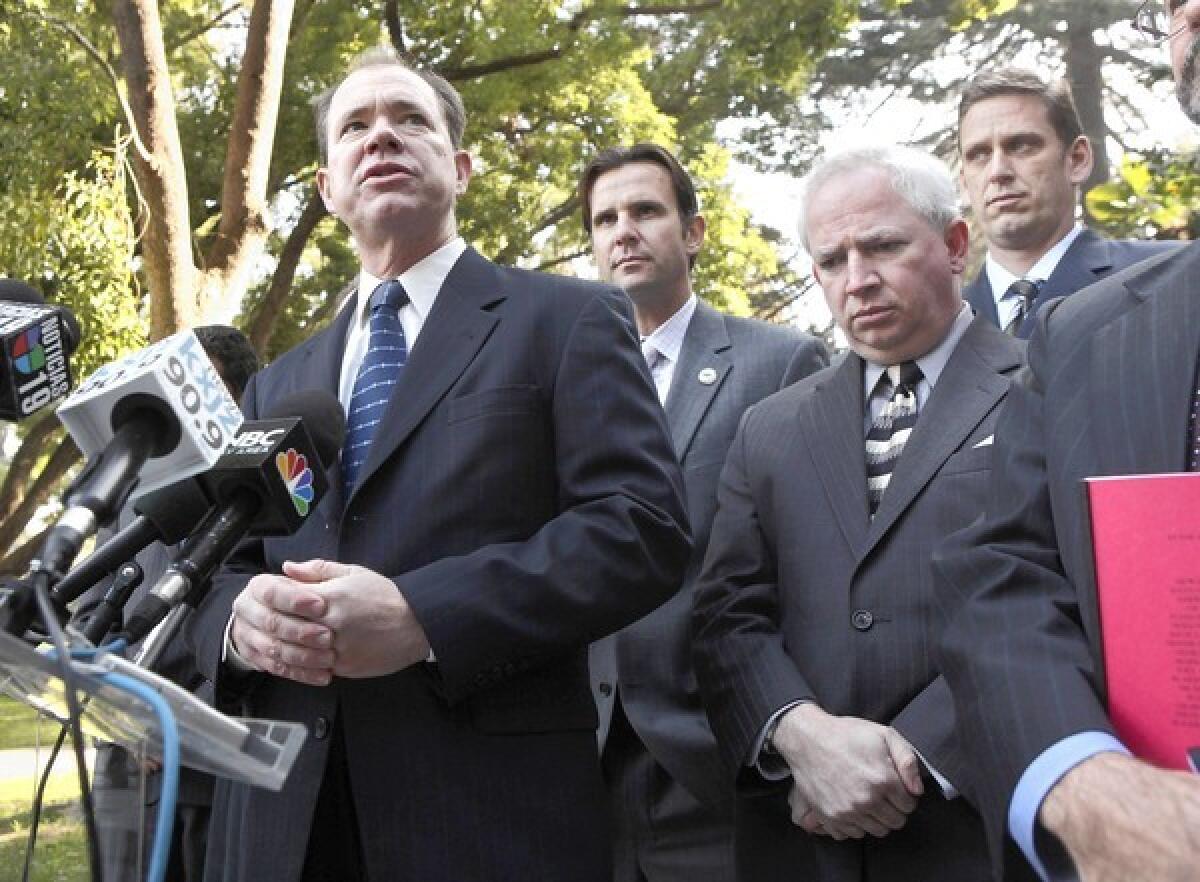Opinion: The Howard Jarvis Taxpayers Assn. takes the wrong side on retirement savings. And loses

Here’s an alarming statistic: According to research by the Federal Reserve, one out of every four Americans has nothing saved for retirement. Part of the reason is that, according to the Schwartz Center for Economic Policy Analysis, more than 60% of Americans aren’t participating in an employer’s pension or retirement savings plan. Surveys find that such plans are extremely popular with workers, but many employers simply don’t offer them — they’re put off by the accompanying paperwork, costs and responsibilities.
So, under the leadership of then-Sen. Kevin de León (D-Los Angeles), the state of California did its residents an enormous service in 2017 when it launched a simple and automatic retirement savings program for workers whose employers do not offer pensions or a 401(k). That program — CalSavers Retirement Savings, or CalSavers — has begun enrolling its first participants, although it won’t be fully phased in until the middle of next year.
Under CalSavers, workers are automatically enrolled in and contribute a small percentage of their pay to individual retirement accounts unless they opt out. Employers’ sole duty is to inform their workers about their options and make the payroll deductions for those who participate; a state board sets up the IRAs and manages the menu of investments. Businesses with fewer than five workers are exempt, but can choose to help with payroll deductions for employees who opt into CalSavers.
You might think that CalSavers would be one of the few government programs left in this polarized country that everyone would welcome. Who doesn’t like the idea of giving people an easy way to set aside earnings automatically for retirement? Who could possibly argue that the world is better with more impoverished retirees instead of fewer?
As it turns out, there are plenty of people in that category, although they wouldn’t frame their opposition to CalSavers in quite those terms. Republicans pushed a resolution through Congress in 2017 that stripped a legal shield that the U.S. Department of Labor had provided for state and local government programs like CalSavers. Then the Howard Jarvis Taxpayers Assn. sued in federal court in Sacramento, arguing that CalSavers, which it considers a waste of state tax dollars, violated the federal law governing employer-sponsored retirement plans.
The group’s motives were partly ideological, partly personal. The California-based association has more than five employees and offers no retirement benefits, so under the 2017 law it has to make CalSavers available to its workers once the program is fully implemented in 2022.
But the Jarvis Assn. is missing the forest for the trees here. It’s clearly in the taxpayers’ interest to have working people set aside some of their pay so that they don’t become dependent on taxpayer-funded benefits in retirement, and CalSavers provides an important means to do so for millions of Californians. It’s easy to see why some Wall Street firms don’t like the state offering a very-low-cost alternative to the retirement plans they peddle to employers; it’s harder to understand why anyone else would.
Happily, the courts have seen little merit in the association’s lawsuit. On Thursday, the U.S. 9th Circuit Court of Appeals upheld a district judge’s dismissal of the case, ruling that CalSavers is a state program, not an employer-sponsored retirement plan, so it’s not subject to the federal Employee Retirement Income Security Act. Nor does it conflict with the goals of ERISA, so it’s not preempted by the federal law.
The ruling is technical, but the conclusion seems obvious. CalSavers’ designers took care to avoid conflicting with ERISA, shielding employers from any responsibility or liability beyond their duty to honor their workers’ choice to invest in or opt out of the state-sponsored IRAs.
Many of the employees eligible for CalSavers are in lower-paying, nonunion jobs, so they may save little today because their budgets are stretched thin. One of the great things about CalSavers is that the payroll deductions come out of pretax wages, which means they take a smaller bite out of the workers’ take-home pay.
And yes, saving a small percentage of a small salary doesn’t seem like much. But the “miracle of compounding” is a time-worn cliche in personal finance for a reason. Plunking money regularly and from an early age into an account that earns a return transforms small amounts into large ones over time.
Americans aren’t very good at saving. CalSavers will help many of this state’s residents do better on that front. And thanks to the 9th Circuit, the program can continue to offer that much-needed help.
More to Read
A cure for the common opinion
Get thought-provoking perspectives with our weekly newsletter.
You may occasionally receive promotional content from the Los Angeles Times.







